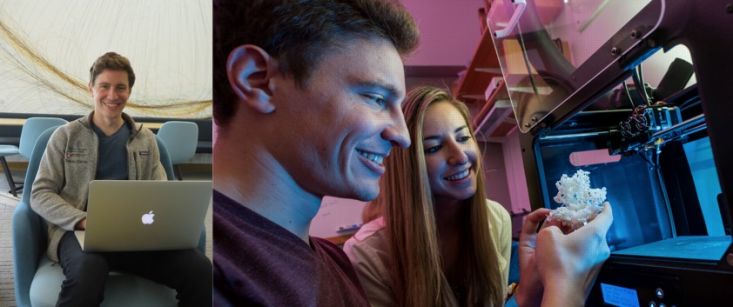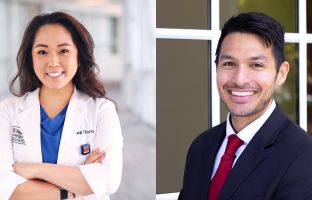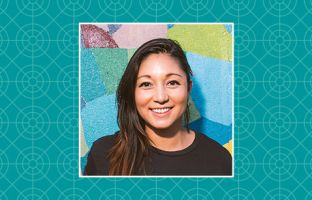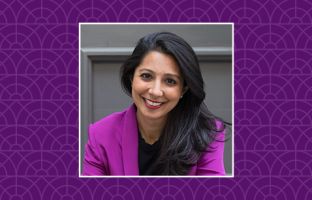This year, after a tremendous amount of struggle and indecision, I decided to pursue entrepreneurship as a Harvard Blavatnik Fellow rather than pursue medical residency training. It was the right decision, but I really liked studying medicine. I loved learning about new science and treatments and pathophysiology. I loved helping people by performing instantly gratifying procedures. I loved the intensity and the rush of adrenaline when the paramedics rolled in with trauma. But what I loved the most was providing support for patients on what were likely some of the worst days of their lives.
Ironically, it was those very same days that I couldn’t stand medicine. Those were the days when we said things like “I’m sorry,” “I don’t know,” and “There’s nothing more we can do.” The first time I heard those words spoken was after a car accident resulting in a coma. I couldn’t help but vividly imagine the moment the patient’s 7-year-old son would learn his dad would never wake up, or how it must have felt for his wife knowing her life partner would never speak to her again. I thought about how unfair it was. I felt the moment heavy, stuck to my chest. I soaked in the tragedy and the ringing silence. I sat there still, as the adrenaline rush from the medical emergency slowly started to fade and was replaced by a sense of unchanging, unmoving reality. In medical school, every time I felt the limits of what medicine could provide, I felt utterly helpless. However, it was that feeling of helplessness born out of an undeniably unjust tragedy that triggered something in me.
I’d refuse to believe it. I’d refuse to accept that this was the best we could do. I would start to wonder and dream. I’d imagine how we could fix it or prevent it or redesign the system so it would never happen again. I’d come up with a crazy idea and wonder if someone had tried it before. I’d scour the literature and start to get excited. I’d find a lead – some data that might support a novel way of doing things.
And then I’d look up and realize I was alone. The attending doctor was chatting with another consult on the phone. The resident was working on a note. The nurse was triaging a new arrival. Everyone else had moved on. Everyone except me and the patient.
But the truth is that they needed to move on. Time doesn’t stop when someone is diagnosed with stroke or quadriplegia or metastatic cancer. Patients don’t stop getting sick or walking in the door. And, while there’s nothing more we can do for one patient, there may be something we can do for the next. I forced myself to carry on that day, and I did that again, and again, and again, until eventually, I couldn’t help but get a little numb. I started to believe the limitations. This is the way it is. There’s nothing more we can do. There are more patients waiting and time is better spent with them than thinking about tragedy strewn about in front of us.
That’s why I decided to forego residency to pursue entrepreneurship. I didn’t always want to move on. Sometimes I wanted to obsess, and dream, and reimagine until I could fix the things in front of me. As a Harvard Blavatnik Fellow, I have the incredible opportunity to do just that. My role is to commercialize life science technologies coming out of Harvard research labs, and with a background in biomedical engineering, medical device design, software development, medicine, and now business, I feel more prepared than ever to bring exciting technologies to market where they can change the way we provide medical care.
It was during my first year of college that I was introduced to entrepreneurship, sparking a fire that’s refused to subside. During a freshman design team course, I worked with a team of students to develop an improved replacement gastric feeding tube that could save elderly and demented patients from costly and disruptive trips to the emergency room. Through a novel design improving both durability and ease of replacement, the device could help thousands of patients a year. I loved the thought of helping so many people through new technology, and I soon became addicted to the idea of working on the cutting edge of science to create positive impact. I found the process of developing something novel and innovative simultaneously fueled both my creative and logical sides, with creativity producing eccentric and exciting ideas and logic distilling those ideas into tangible realities.
With this newfound passion, I threw myself into a variety of projects over the following years. I worked on both a malnutrition diagnostic tool and a minimally invasive lung biopsy device in undergrad. In medical school I co-founded a prototyping lab and entrepreneurial curriculum for medical students. I worked on an Android app to predict sudden cardiac death, built an iPhone app to measure perfusion pressure and predict diabetic wound healing, and developed an augmented reality app on Microsoft’s Hololens to display real-time imaging to help guide ultrasound exams. With each project I learned more and more about the moving pieces necessary to achieve success and bring something to market where it could help people. However, as a medical student, these projects
always took a back seat to schoolwork. My desire to commit more time to entrepreneurship began to grow, but I wasn’t sure how to address it. Thus, in an effort to carve out additional time to explore entrepreneurship, I applied to Harvard Business School.
HBS represented a significant fork from the traditional path of medical school, but I had no idea how valuable my experience would be towards becoming an entrepreneur. One of the challenges of pursuing entrepreneurship is the lack of a clearly defined path. Unlike medical school, there isn’t a defined sequence of steps one can take to become a successful entrepreneur. With no guard rails and no one there to say what’s right or wrong, entrepreneurship requires a certain amount of comfort with being uncomfortable. It requires decisions in the face of ambiguity with limited data and only gut feeling to go on.
HBS helped me learn to operate and lead when there wasn’t a clear or obvious direction. With virtually no background in any of the topics taught in business school, attending HBS was getting thrown in the deep end. One day I was taking care of patients and the next classmates were teaching me excel shortcuts and explaining financial jargon. Unless we were discussing a medical case, I felt like the dumbest person in the room, and I loved it.
Reading hundreds of cases, I had the opportunity to think about a diversity of challenges ranging from pivoting an entire business model after a failed startup experiment to negotiating venture capital deal terms to navigating cultural shift in a rapidly growing startup previously composed of a conservative, religious majority. With each case I was pushed to evaluate situations with limited data and no clear answer, putting together an action plan to lead the way forward. Then, my brilliant classmates, with their own unique experiences and perspectives, would tear my plan apart. They challenged me, illuminating gaps in my knowledge and pushing me to think in new ways. Through my HBS coursework, I had the opportunity to practice navigating ambiguity over and over again, all the while learning, improving, and developing confidence to operate and lead. Furthermore, the classmates that challenged me to grow became life-long friends, becoming a diverse network of smart, thoughtful people that I will always be able to call on for help. Near the end of my time as an HBS/HMS joint degree student, I felt more prepared than ever to navigate the challenges of entrepreneurship. Thus, when the opportunity to pursue entrepreneurship through the Blavatnik Fellowship arose, I leapt at the opportunity.
With lofty career goals that aim to fix the broken pieces of medicine and transform medical care through innovative advancements in technology, I am only just beginning a long journey of what I hope results in better, higher quality patient care. I’m extremely fortunate to have the support and resources of the Blavatnik Fellowship to begin my entrepreneurial journey and am very excited to help advance Harvard research towards commercialization where it can have a tangible impact on people’s lives.
Choosing to forego residency was a challenging decision. With a sizeable debt burden from both medical and business school, I took a leap of faith, but the freedom to pursue my passion means the world to me. Bent on transforming medical care through technology, I hope to continue my entrepreneurial journey and am ecstatic to be at Harvard working with some of the brightest minds in the world while doing so.







